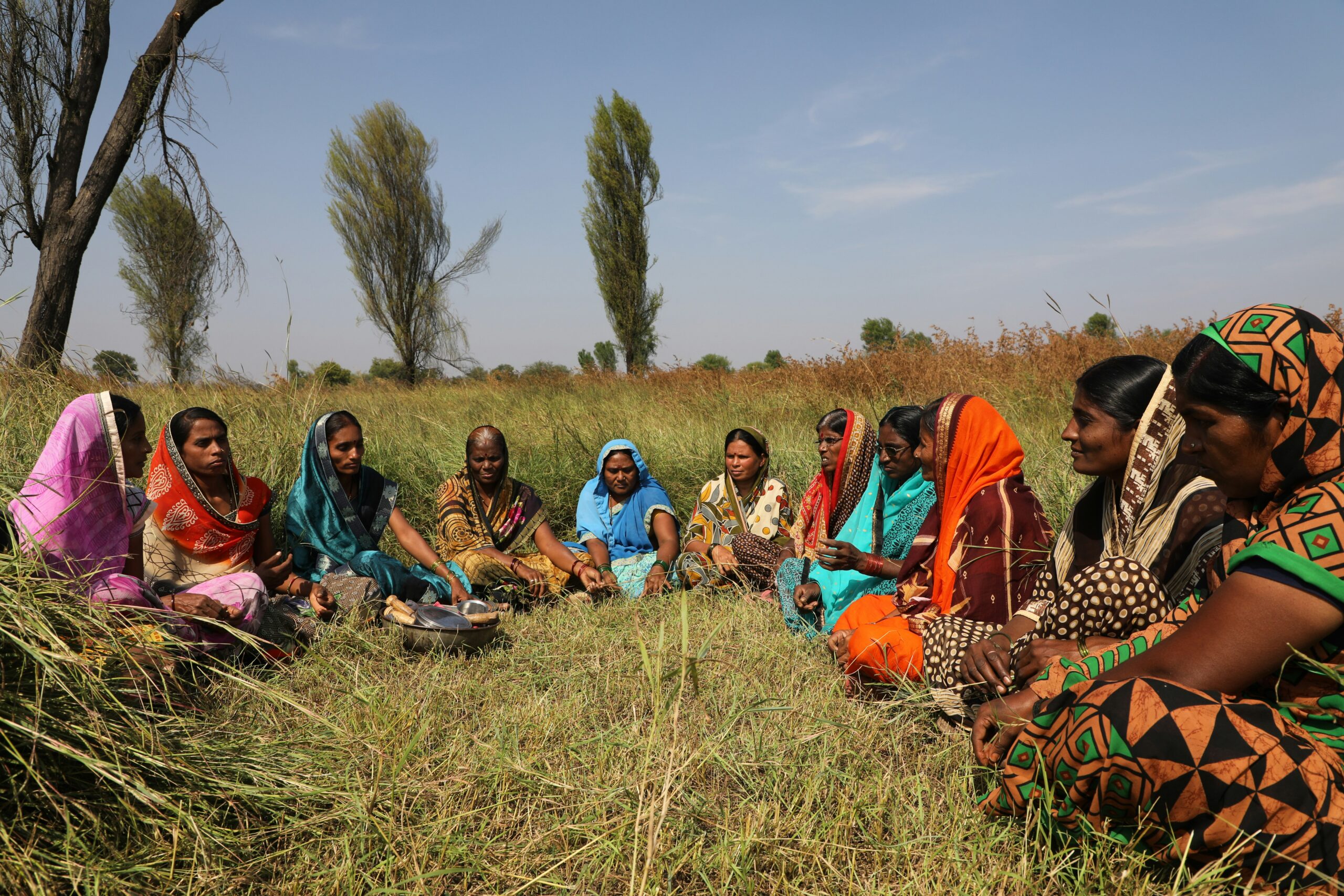
August / 29 / 2024
By: Neha Yadav & Asrarul Haque Jeelani
The relationship between humans and nature in Uttarakhand’s mountain regions has long been governed by stark dualisms, such as human versus nature and local versus outsider. These dualisms, deeply embedded in the fabric of environmental policy, have perpetuated ecological degradation and social marginalization, particularly of women. Drawing upon eco-feminist critiques, this essay explores how integrating community rights and eco-feminism can transform environmental governance in Uttarakhand. This approach not only addresses historical injustices but also aligns with the themes of just and plural political ecologies, advocating for a future where governance is both inclusive and equitable.
Eco-feminism offers a robust framework for challenging the traditional binaries that underpin environmental governance. In Uttarakhand, these dualistic views have historically justified the exploitation of nature and the exclusion of marginalized communities from decision-making processes. As noted by scholars like Passmore (1974) and Brahma (2019), these frameworks perpetuate a cycle of exclusion and environmental mismanagement that eco-feminism seeks to dismantle by advocating for a holistic view of the interdependence between humans and the natural world.
The eco-feminist movements in Uttarakhand, including the renowned Chipko Movement, illustrate the potential of such perspectives to reshape governance structures (Guha, 1989). These movements have foregrounded the roles of women and local communities in environmental stewardship, emphasizing sustainable practices and equitable participation in governance processes.
Critiques of eco-feminism, such as those by Plumwood (1993) and Cuomo (1998), have highlighted the risk of essentializing women’s connections to nature. These critiques call for a more nuanced understanding of intersectionality within eco-feminism, recognizing how various forms of social stratification—gender, caste, class, and race—intersect to influence individual and community interactions with the environment.
Addressing these intersections is crucial in Uttarakhand, where environmental impacts are mediated by complex social hierarchies. For example, the differential impacts of climate change on diverse communities highlight the need for governance frameworks that are attuned to these complexities and are capable of responding to the nuanced needs of the region’s inhabitants.
Looking forward, the challenge for Uttarakhand lies in fully integrating the principles of eco-feminism and community rights into its environmental governance frameworks. This integration requires not only recognizing the unique needs and contributions of women and other marginalized groups but also actively restructuring governance processes to foster their participation and leadership.
Current debates in political ecology stress the importance of moving beyond traditional conservation models towards more inclusive practices that recognize the rights and knowledge of local communities (Agrawal, 2002). This shift requires a reevaluation of existing policies to ensure they are not only ecologically sustainable but also socially just, providing platforms for previously marginalized voices to participate in environmental governance.
Central to this transformation is the recognition and integration of traditional ecological knowledge (TEK) from local communities, particularly indigenous women, who are custodians of biodiversity and possess longstanding environmental knowledge (Berkes, 1999). TEK not only offers sustainable resource management solutions but also provides a basis for innovative policy-making that bridges the gap between modern scientific methods and traditional practices.
The policy implications of integrating TEK are profound, especially in mitigating risks associated with climate change, biodiversity loss, and natural disasters. Such integration fosters resilience by leveraging locally adapted solutions and ensuring that conservation strategies are culturally relevant and ecologically appropriate.
This essay advocates for a re-envisioned approach to environmental governance in Uttarakhand, one that is rooted in the principles of eco-feminism and enriched by the diverse voices of local communities. By challenging the entrenched dualisms that have shaped traditional environmental policies and advocating for the inclusion of marginalized groups, this approach aligns with the broader themes of just and plural political ecologies.
Integrating eco-feminist principles into the governance framework ensures that future policies are not only sustainable but also inclusive, responsive, and equitable. As Uttarakhand moves forward, it is crucial to continue this dialogue and reevaluation of policies to foster a governance model that embodies justice, equity, and ecological sustainability. This model should not only be theoretical but also practical, emphasizing the need for real-world applications that respect and incorporate diverse community voices in decision-making processes. Such a pluralistic approach to political ecology promises a more sustainable and just future for Uttarakhand’s mountain regions and beyond.
This comprehensive exploration aligns with the special issue’s theme by addressing how just and plural political ecologies can inform and transform traditional environmental governance practices, ensuring they are more inclusive of and responsive to the needs of all community members, especially those traditionally marginalized.
Agrawal, Arun. (2002). “Indigenous knowledge and the politics of classification.” International Social Science Journal, 54(173), 287-297.
Berkes, Fikret. (1999). Sacred Ecology: Traditional Ecological Knowledge and Resource Management. Taylor & Francis.
Brahma, Ananya. (2019). “Safeguarding the Rights of Indigenous People in India.” Journal of Humanities and Social Science, 24(6), 1-26.
Cuomo, Chris J. (1998). Feminism and Ecological Communities. London: Routledge.
Guha, Ramachandra. (1989). The Unquiet Woods: Ecological Change and Peasant Resistance in the Himalaya. University of California Press.
Passmore, John. (1974). Man’s Responsibility for Nature: Ecological Problems and Western Traditions. Scribner.
Plumwood, Val. (1993). Feminism and the Mastery of Nature. London: Routledge.